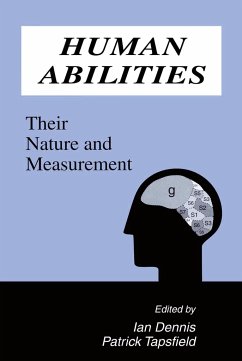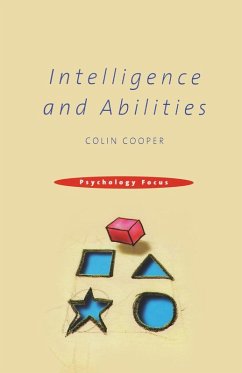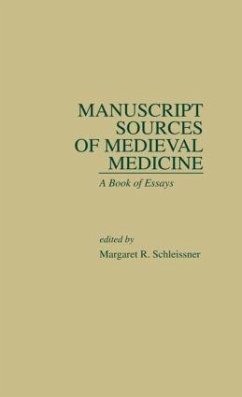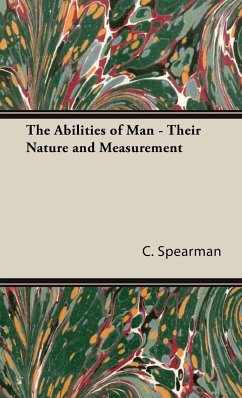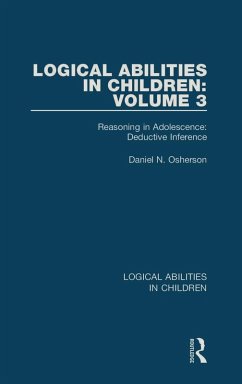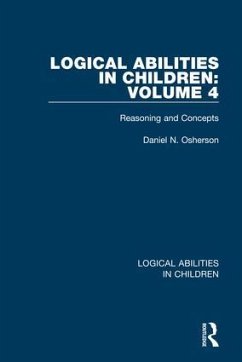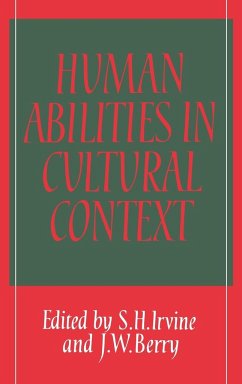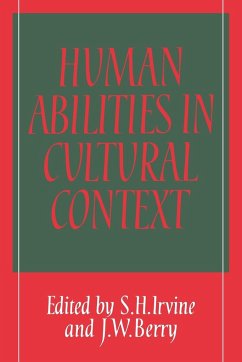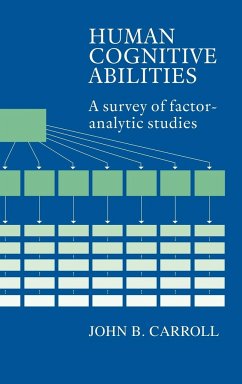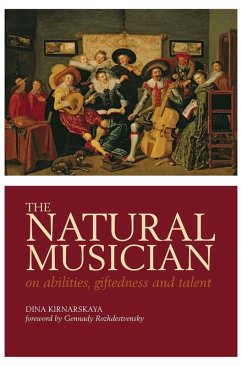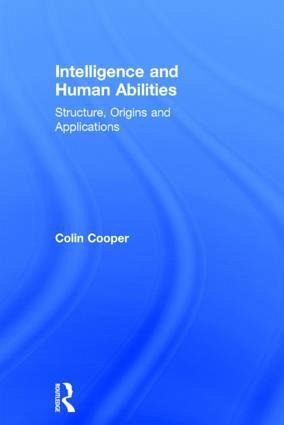
Intelligence and Human Abilities
Structure, Origins and Applications
Versandkostenfrei!
Versandfertig in 1-2 Wochen
199,99 €
inkl. MwSt.
Weitere Ausgaben:

PAYBACK Punkte
100 °P sammeln!
Choice Recommended Read Psychological research into human intelligence and abilities presents us with a number of difficult questions: Are human abilities explained by a single core intelligence or by multiple intelligences? How should abilities be assessed? With tests unlike the problems which people normally have to solve, or with practical problems closer to those encountered in life, school and work? Do ability tests predict how a person will behave? If so, can they predict whether a person will succeed at school and at work? Intelligence and Human Abilities critically evaluates research e...
Choice Recommended Read Psychological research into human intelligence and abilities presents us with a number of difficult questions: Are human abilities explained by a single core intelligence or by multiple intelligences? How should abilities be assessed? With tests unlike the problems which people normally have to solve, or with practical problems closer to those encountered in life, school and work? Do ability tests predict how a person will behave? If so, can they predict whether a person will succeed at school and at work? Intelligence and Human Abilities critically evaluates research evidence from the past 100 years to consider these and other issues. It shows that, despite the apparent contradictions in this research, the evidence in fact supports one coherent model, a fact which has clear implications for researchers, educators and test-users. This clear and engaging text provides an up-to-date evaluation of what the empirical evidence tells us about the number, nature and origins of human abilities. It will be essential reading for students and practitioners of psychology and education, and also for users of ability tests such as applied psychologists and personnel managers.





